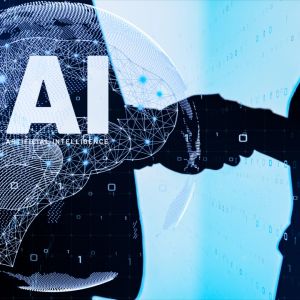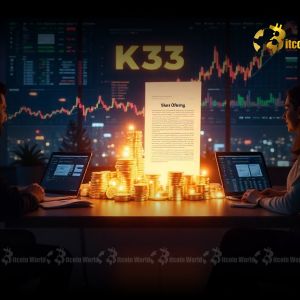Goldman Sachs goes the AI programmer route as Wall Street watches
3 min read
Goldman Sachs has just hired something that doesn’t eat, sleep, or cash a paycheck. Its name is Devin, and it’s not human. The AI software engineer making its debut on Wall Street was created by Cognition, a startup founded in 2023 and backed by billionaire investors like Peter Thiel and Joe Lonsdale, according to a report by CNBC today. Devin was introduced to the public last year through demo clips that showed it finishing real software engineering assignments; full stack, start to finish, with little to no human help. Now, according to Goldman’s Chief Information Officer Marco Argenti, the bank is preparing to onboard hundreds of Devins. “We’re going to start augmenting our workforce with Devin, which is going to be like our new employee who’s going to start doing stuff on behalf of our developers,” Marco said . Goldman has 12,000 human software engineers. Marco made it clear that the number of AI agents could soon be in the thousands, depending on how things play out. From chatbots to full developers Wall Street has already been dipping its toes into AI. Banks like JPMorgan Chase and Morgan Stanley used large language models last year to generate summaries and write emails. But those were just glorified chatbots. This is different. Devin executes multi-step tasks, like building entire apps or migrating internal systems to modern programming languages. It’s doing things that typically require a full team of engineers. Cognition, the company behind Devin, was barely a year old when its valuation doubled to almost $4 billion in March. It claims that Devin is the first autonomous AI software developer of its kind. While Goldman is now using Devin in live environments, it doesn’t hold a financial stake in Cognition. What makes this AI different is its ability to handle boring, complex work that engineers tend to hate. “Updating legacy code into modern frameworks” is one of the tasks Marco mentioned specifically. That kind of labor is usually handed to junior devs or consultants. But with Devin, Goldman doesn’t need either. The bigger picture here is Wall Street’s growing interest in agentic AI. AI that doesn’t just assist, but replaces parts of the workflow entirely. Tech firms like Microsoft and Alphabet have already said that AI now writes 30% of the code in some of their software projects. Marc Benioff, CEO of Salesforce , recently said AI handles 50% of the work inside his company. Now Goldman is pushing that trend into finance. Marco believes this new AI is miles ahead of earlier tools. He said it could improve developer productivity by 3x to 4x, which explains why the bank’s testing isn’t limited to just a handful of engineers. “Those models are basically just as good as any developer, it’s really cool,” he said. That last part may sound exciting, but it comes with implications. Hybrid workforce or headcount cuts? The inevitable concern is jobs. Goldman Sachs is a first mover, but it’s not going to be the last. Earlier this year, Bloomberg Intelligence predicted that 200,000 banking jobs will be cut in the next three to five years because of AI. With Devin now inside Goldman, other firms may follow suit; not with chatbots, but with AI that can actually replace developers. Marco doesn’t deny that. Instead, he talks about a “hybrid workforce,” where humans manage AI tools. “Engineers are going to be expected to have the ability to really describe problems in a coherent way and turn it into prompts,” Marco said, adding that developers will need to supervise the AI, not compete with it. That’s where things get murky. If one AI can do the job of three people, do you keep all three and retrain them to supervise, or do you just keep one human and one Devin? Marco didn’t say. But what’s clear is that Goldman’s vision doesn’t stop at software developers . “So I think that will serve as a proof point also to expand it to other places,” he said. Meaning other job roles might be on the chopping block too. So far, no other major bank has publicly embraced Devin. If the results come back strong, and if productivity numbers hit the levels Marco suggested, don’t be surprised if thousands of AI coders start popping up across Wall Street faster than HR can file the paperwork. KEY Difference Wire helps crypto brands break through and dominate headlines fast

Source: Cryptopolitan



